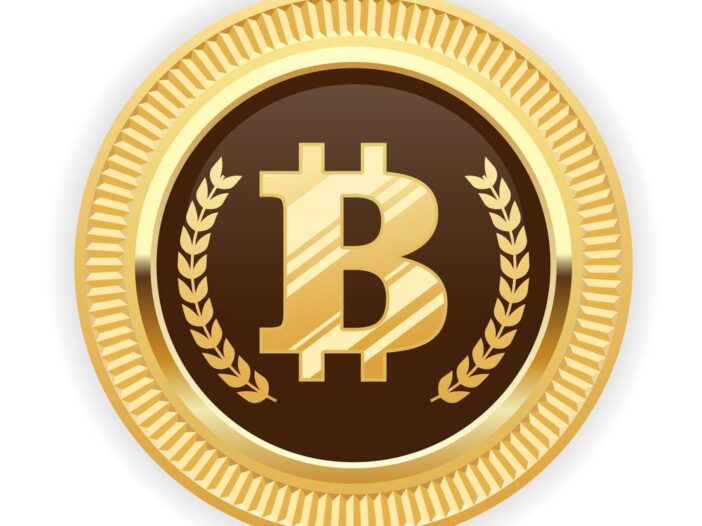In today’s Money Morning…two roads one choice…the Bitcoin standard…an illusion of manipulation…and much more…
I don’t know if you caught my colleague Ryan Clarkson-Ledward’s (RCL) barnstorming piece on Friday.
But you should really give it a read because it’s a cracker.
RCL took aim at recent comments on cryptocurrencies from the RBA’s head of payments Dr Tony Richards.
He stated:
‘His presentation for the Australian Corporate Treasury Association yesterday was filled with plenty of classic critiques. It included comments that crypto is used for financial crime, speculative investment, and — of course — rampant energy wastage.
‘The same tired old arguments that we’ve seen dozens of times at this point. Calling crypto a “fad” for the millionth time in its nearly 12-year lifespan.’
As someone once remarked to me, crypto needs better sceptics. Because all comments like Dr Richards’ prove is their own incompetence at understanding it.
Though, to be fair, I suppose when your whole raison d’être hinges on the need for centralised power, it’s hard to be too enthusiastic about something that makes you obsolete!
Or as the 19th century US populist politician William Jennings Bryan is said to have remarked:
‘It is difficult to get a man to understand something, when his salary depends upon his not understanding it.’
My mate RCL rammed home a similar point, saying:
‘The whole point of Bitcoin [BTC] and most crypto projects is to remove the need for central banks and other middlemen — institutions that tamper and toy with market dynamics to suit their own ends.
‘Why should we have to put up with people like Dr Richards, who destroy the value of fiat currency at their own whims? They erode our wealth under the guise of economic stability.
‘They’re the real crooks and gamblers…
‘Not us.’
This is the crux of it…
Two roads, one choice
Consider the economic backdrop we have right now.
Eye-watering inflation, negative interest rates, record debt, asset bubbles, speculative frenzies, extreme volatility in currency markets…heck, even the Commonwealth Bank of Australia [ASX:CBA] fell 8% in one sitting last week.
It’s definitely not normal for a stock of that size to fall so fast in one day.
Now, I’m generally an optimist, but even I can see we’re in a bit of an economic pickle.
So how do we get out of it?
To be honest, I don’t have a clue.
Raise rates, and assets will collapse due to immense debt loads. That’ll make a generation of retiring baby boomers destitute.
Keep rates low while inflation runs wild, and you’ll have social revolt as households struggle to put food on the table or a roof over their heads!
Last week, I actually had a good chat on camera with my colleague Greg Canavan about this — he had some very interesting ideas on how governments will try to manage the debt trap we’re in.
You can watch that interview here.
But, broadly speaking, there seem to be two trains of thought…
First…give central powers like the RBA more control. Let them create their own digital currencies, so-called central bank digital currencies (CBDCs).
These monstrosities give the architects of our current malaise even more control over your money.
In my opinion, CBDCs are dangerous.
Not content with creating it at will, they’ll be able to monitor every transaction you make, program money to only be used in certain sectors or within certain time frames, censor spending of those deemed ‘undesirable’…and probably worse.
They give total control to a bad mix of career bureaucrats and power-hungry politicians.
While this might seem like hyperbole, you only need to look at the actions of some governments recently to see how far they’re willing to go.
And whether you think those moves were justified or not, you can rest assured economists will always have some theoretical justification for micromanaging money.
The same theories that got us to this point!
The second option goes in the opposite direction…
How to Limit Your Risks While Trading Volatile Stocks. Learn more.
The Bitcoin standard
We take the central banks out of the equation.
We realise their quest to ‘create economic stability’ is a false dream.
Instead, what it gives us is financial socialism, with them wielding the power of ‘Cantillon’ money creation.
The leading alternative ‘free market’ approach comes from Bitcoin [BTC].
It has a pre-programmed monetary policy with a fixed supply schedule. It’s uncensorable and open to anyone (including 1.5 billion unbanked people) in the world. It does away with ticket-clipping middlemen.
In a word, it’s completely decentralised.
These rules are set in stone. No one can vary them for their own benefit — meaning we have a level playing field on which to compete.
Does that mean there won’t be volatility?
Of course not!
But, as I said before, the reduction of volatility is an illusion of manipulation.
It’s why ‘too big to fail’ exists. It’s the reason the rich get richer and the middle class gets hollowed out.
Or as the French philosopher Voltaire put it:
‘Uncertainty is an uncomfortable position. But certainty is an absurd one.’
With a ‘Bitcoin standard’, you live by your wits with hard money — money that can’t be debased — as the reward for success.
You know, the way free markets were meant to work.
Is that so radical?
Is that so strange?
Is that not the world our grandparents told us about?
Don’t expect the gravy train of financial middlemen to admit to any of this. It’d be like a postman telling you about the virtues of email in 1995!
But whether you (or they) believe in bitcoin or not, the stark choice I gave above represents the only two possible futures.
A world of more centralised power or a world of less.
Which would you prefer?
Good investing,
 |
Ryan Dinse,
Editor, Money Morning
PS: Ryan is also editor of New Money Investor, a monthly advisory aimed at helping investors take an early-mover advantage as decentralised finance and digital money take over the world. For information on how to subscribe and see what Ryan’s telling his subscribers right now, click here.

